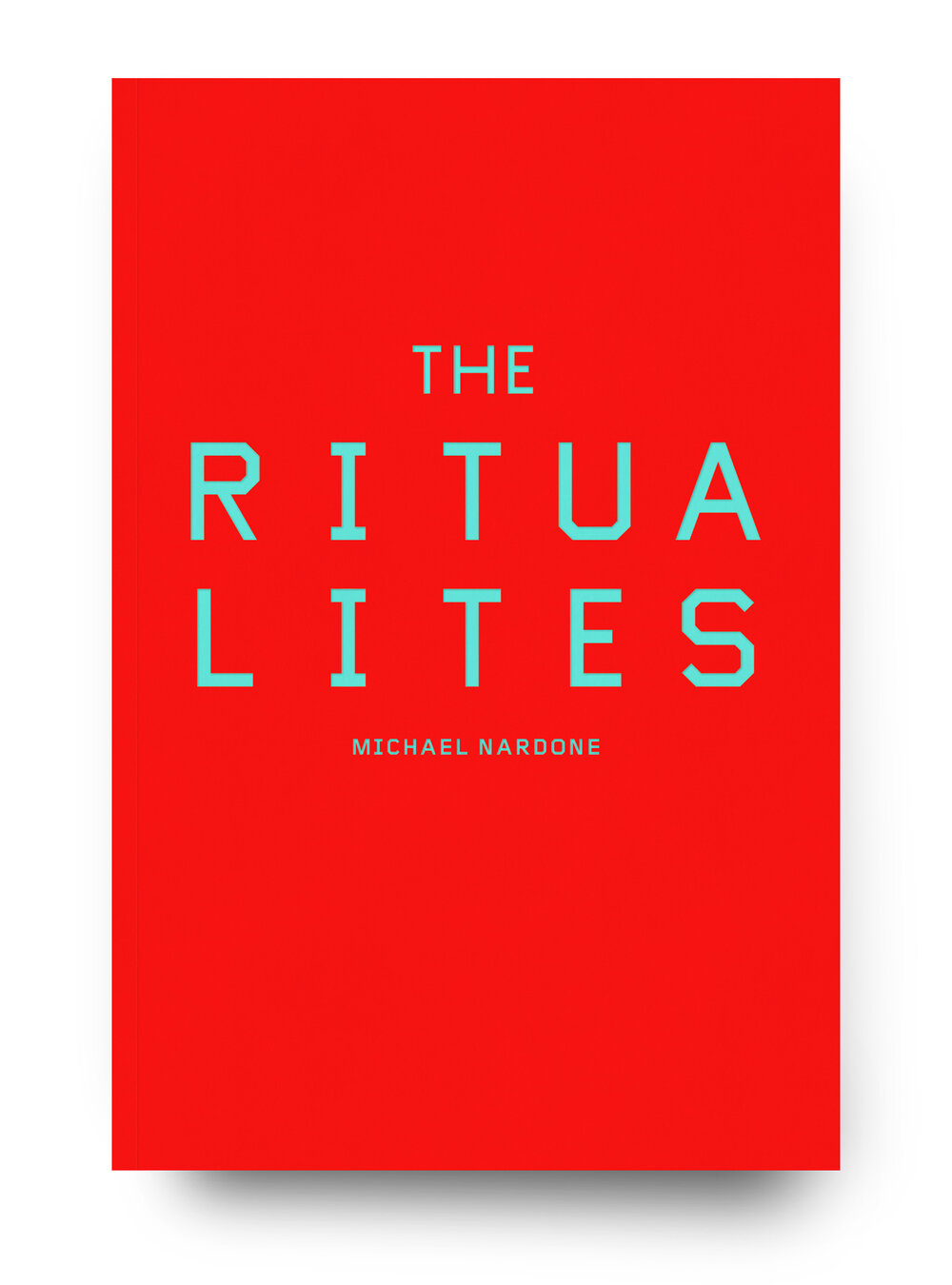
Purchase (CA) | Purchase (US) | Borrow
“Nardone’s poetry unsettles territories as it roves through the continent, documenting the neon signs and the billboards, the dinner table conversations, and the overheard terrors of everyday Americana. The book orchestrates unlikely and compelling movements between abstracted, parodic narrative and lyric elegy, which Nardone writes as modulated, cerebral laments for an era’s failure to reach utopia. The poems map what we drive towards, driven mad, driving round the bends in form and through the American landscape—from Pennsylvania to South Dakota to Nevada. Witnessing geographic movement as a kind of living trespass, The Ritualites impressed upon me the need for re-tuning poetry’s ethnographic ear, for transposing attention away from calcified ‘identity’ and toward living, throbbing practices of civilian life across the United States.
“Nardone’s verses seem to take their cue from Muriel Rukeyser’s citational, attentive documentation of the embodied devastations of corporatized and industrialized belts. In his parodic, aloof prose, the critical lathe seems poised to spin Lisa Robertson’s claim in her succinct poem “Envoy”: “analysis too is a style of affect.” Episodic and variegated, the book’s many voices are by turns ventriloquial and verisimilitudinous—sometimes welcoming a careful and attuned ear, sometimes shunning it; sometimes asking for sympathetic leaning, sometimes ironic distance. This is a book that wants the reader to be many-splendored and nimble. My hope has always been for poets to subscribe not to movements or schools of aesthetics, but to be the bearers of urgent form—form as a thing to be broken and held close, at once. Nardone’s collection seems to carry that urgency, seems to know artifice for what it is—a holding pattern for thought’s flight, so it can land in a stranger place, further, always, from the comforts of habit and home.”
–Divya Victor, author of Kith
“Transcription precedes essence. Michael Nardone’s The Ritualites explores writing as an interface for the found’s sounds, made new by his ingenious and generative ear, novel forms, and wry sense of humours.”
–Charles Bernstein, author of Near/Miss
“The Ritualites is a spellbinding collection of North America’s sonic architecture and Nardone is a poet of its topologies, listening to the air when the body stops. The Ritualites is the jukebox of place; embodied leakages of the night, the shout, the cry and the laughter. A poetics of what language lays bare: little panic breaths, sound permitted in a cell. In The Ritualites, Nardone reminds us that language is wielded and listening is a verb.”
–Jordan Scott, author of Night & Ox
+
Reviews:
“Reclaiming the Rituals of Sonic Space: A Review of Michael Nardone’s The Ritualites,” by Marc Grenon in The Hamilton Review of Books
“There is an urgency to these poems, one that attempts both an order and the acknowledgment of a lack of that same order, shifting back and forth throughout.” —rob mclennan’s blog
“Nardone’s lines are more dense and fragmented, but they always reflect back the reader’s own paranoid compulsion to connect, poetically, these shards of the unnoticed world.” —Winnipeg Free Press
“Nardone has taken the concept of the poetic ear and concretized it through his ambitious experiment in listening and documentation. The effect is a work of multifaceted complexity that rewards myriad interpretations.” —Marcela Huerta, Montreal Review of Books
“Immanence, as Gilles Deleuze writes, is not just a space of annihilation but also the ‘absolute ground of philosophy, the earth or foundation on which it creates its concepts.’ And in Nardone’s The Ritualites, concerned as it is with not just textual or ideological tropes, but with sonic and aural resonances, polyphony, echolalia, glossolalia, oral histories, overheard language, poetry as both image and sound, and the word as both phoneme and grapheme, one is hard-pressed to think of another collection of contemporary poetry that represents this terrifying ‘absolute ground’ with as much passion, ingenuity, and verve.
Bucolic Greek poets, Futurist and Dadaist vanguards of the early 20th century, spoken word poets, and all contemporary readers in forms of post-lyric verse (anti-authoritarian, non-didactic, yet not committed to nonsense as aesthetic, per se) alike will find much to admire in Nardone’s dazzling collection, which unites the magnetism of words and their sounds to captivating, dystopic forays into our crumbling bio-political and historical landscape.” —Virginia Konchan, Tripwire: a journal of poetics